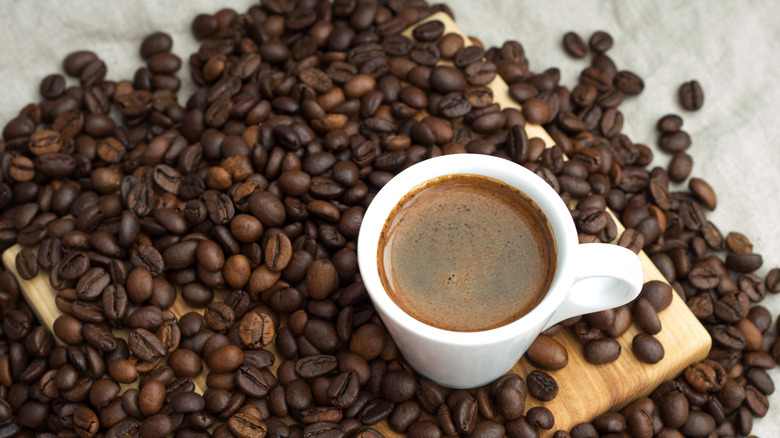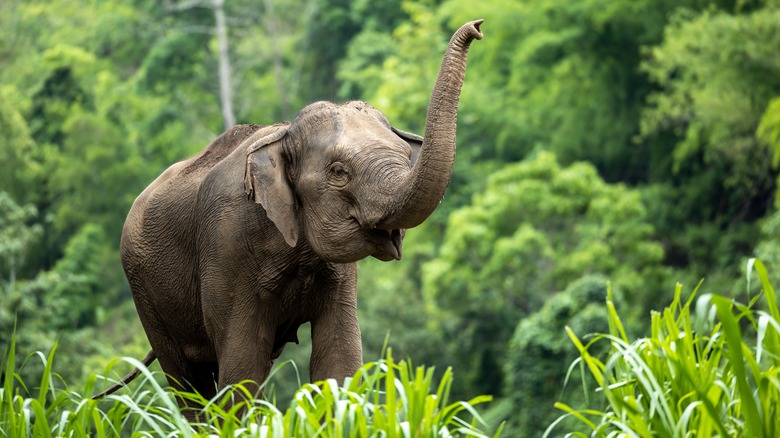How This Expensive Coffee Is Harvested With The Help Of Elephants
In the northeastern province of Surin, Thailand, dozens of hands sift through elephant poop to bring you the world's most expensive coffee. It's true! These one-of-a-kind coffee beans are the brainchild of Canadian coffee maker Blake Dinkin, who began producing the unique coffee in 2012 (via Bangkok Post).
Dinkin got his start in the coffee industry making Kopi Luwak coffee, a sort of spiritual precursor to the beans he sells today (although "beans" isn't exactly the right word since coffee beans are actually pits of coffee cherries). Kopi Luwak begins with feeding those cherries to cat-like animals called civets that eat the pulp of the fruit. The beans undergo fermentation as they travel through the animals' digestive systems before, well, coming out the other end. Dinkin eventually abandoned Kopi Luwak due to animal cruelty concerns but thought he could do something similar and more ethical with elephants. You can probably see where this is headed.
A journey from gut to cup
Black ivory coffee undergoes the same process as Kopi Luwak, but with elephants. Dinkin has two reasons for choosing to work with these giant creatures, starting with the fact that they're natural herbivores (via NPR). Another appealing factor for Dinkin was the opportunity to pair business with a good cause. The elephants that make Black Ivory coffee are residents of the Golden Triangle Asian Elephant Foundation, a rescue and rehabilitation center. The animals eat local Arabica coffee beans from surrounding mountains that have been mixed with fruits like banana and tamarind (per Black Ivory Coffee Company). Between 12 and 72 hours later, the beans come out from the other side.
As was the case with Kopi Luwak, exposing the beans to digestive enzymes breaks down proteins that can produce bitter notes, reports NPR, to produce a gentler, slightly nutty brew. Once beans are sorted from feces, they are sent to a nearby village where employees wash and sun-dry the product — for wages that Black Ivory Coffee Company claims are 50 times more than what average workers earn.
If you want to sample this coffee for yourself, get your wallet ready. USA Today reports 1 pound of these Black Ivory coffee beans will set you back about $500.

